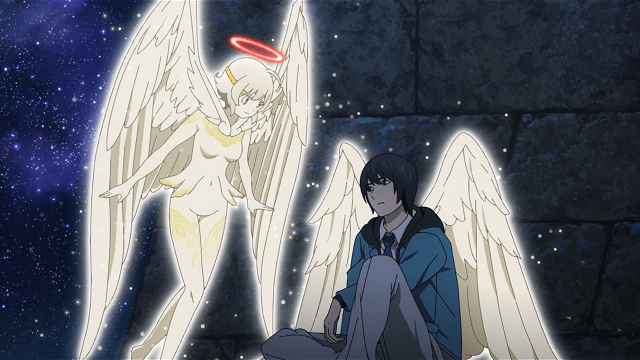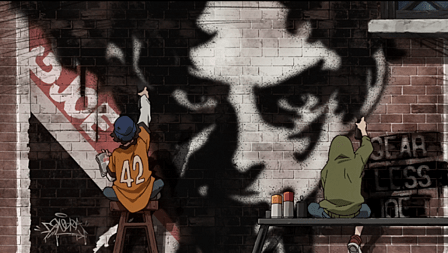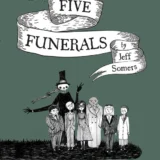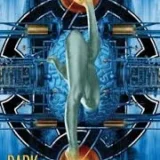CLUBHOUSE: Review: Neo-opsis Magazine issue #31

OBIR: Occasional Biased and Ignorant Reviews reflecting this reader’s opinion.
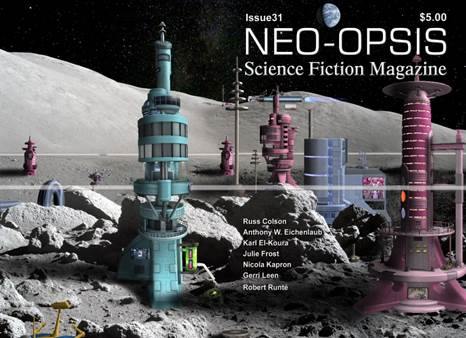
Neo-opsis Magazine – Issue #31, November 2020
Published out of Victoria, British Columbia, Canada.
Editor: Karl Johanson. Assistant Editor and Art Director: Stephanie Johanson.
Cover: Lunar City by Karl Johanson
Editorial:
Review:
The last issue of Neo-opsis came out a year ago. I was beginning to get worried. I’ve long been aware that most professional SF&F magazines in Canada are operating at a razor-edge of financial viability, constantly juggling costs against expenses, desperately seeking income from store sales, subscriptions, patrons, grants and miracles. It has gotten too much, and Neo-opsis is going strictly digital.
Karl points out the numerous advantages: no paper costs, no printing costs, no mailing costs, no hassles with Canada post, hyperlinks can be included, additional pages and colour illos no problem. In terms of stress and strain, much reduced headaches for the publisher and editors. This is the path I chose right from the get go for my semi-pro magazine Polar Borealis. I think it is inevitably the path for all magazines if they wish to survive.
(Will print-on-demand be viable for magazines? I doubt it. Anyway, a separate question.)
The one conundrum facing an all-digital magazine is, will readers be willing to pay for it? I’m guessing, yes. If readers want access to quality fiction, magazines need income to pay the contributors. In my case, my pension income pays contributors, but that results in a very low rate of pay. Pro magazines need to pay closer to SFWA standards if they are to compete with each other for contributors and readership. Readers like to read. So much so, I don’t think going digital will hurt. Collectors might complain, but not readers, not if it means they can go on reading. Especially when you consider the only other option is a defunct magazine.
I am convinced going digital is a sound business decision for Neo-opsis. It may well lead to an increase in subscriptions (so few people have room for “clutter” these days.)
I am happy for Karl and Stephanie. This will put the fun back into the joy of publishing.
The one sad note? It is getting harder and harder to be a collector. Fewer and fewer printed zines to molder away on dusty shelves. Perhaps in the not-too-distant future one will have to visit a museum to gaze upon a printed book or magazine, or even a piece of paper. Utopia? Dystopia? Who’s to say? As a reader, I prefer print. As a publisher, digital. Perhaps the correct definition of the future is “schizophrenic.”
The Last Farewell – by Nicola Kapron
Premise:
The aliens keep coming. They are ruthless, determined to wipe out the human race. In the process the Earth’s environment is being eliminated, too. Seems the aliens don’t want the Earth. They just want to end us. And the weird thing is, they can’t be bothered to send more than one invader at a time.
Review:
Strikes me as a breath-takingly original concept with layers of complexity slowly revealed as the story progresses. Everything about this story is amazing. The nature of the aliens. The human response to the threat. The manner of our dying. The fearful price of wielding the ultimate weapon. I’m blown away by this story. It captures an extraordinary mix of anger, despair, ennui and angst to encapsulate the emotional turmoil of humanity on the brink and, even more incredible, the beauty of our fading. Emotionally speaking, I don’t know where to turn. I have seldom been so moved by a piece of hard science fiction.
I’m stunned. Maybe because I’m still awaiting the results of the US election, my emotional stability is fragile and easily triggered. At any rate, caught me at the right moment to impact me in unexpected ways and strengths. So this is what the end of the world is like. It figures.
The last Farewell makes the plot of the movie Independence Day look like dreck pulp fiction from the 1920s. This is intelligent, mature science fiction. This is what I constantly search for and rarely find, my sense of wonder stirred to a point of hallucinatory and prophetic vision.
I like this story. I think you can tell.
It’s an old-fashioned, concept-driven story, and the concept is brilliant. I love it.
Heart of a Champion – by Geri Leen
Premise:
Selective breeding produces better racehorses. What will happen if Geneticists and modern technology replace ranch tradition?
Review:
A poem that raises many interesting questions. Not just A.I. we need to contemplate.
Pulls Weeds and Does Dishes – by Anthony W. Eichenlaub
Premise:
Iris doesn’t need a house robot. She’s fiercely independent. But her son George says it’s either the robot or going into a home. And the dishes are piling up.
Review:
A gentle, rather charming take on how humans and robots might relate to each other. Some quite original touches I’ve not seen before. Given that people tend to treat human servants as if they are robots, or slaves, it’s pleasant to contemplate robots as ever-so-tentative humans. Humans tend to divide each other into castes, even in proudly caste-free societies, as it seems a construct of basic human nature. Can it be that robots will prove to be, not only our equals, but morally superior? And would that not be a good thing, even if it is merely an illusion created by clever programming? A subtle story far more complex in its implications than a superficial reading would suggest. Thought-provoking.
Rite of Passage – by Julie Frost
Premise:
Theresa is a small-town sheriff, and a wizard. Normally, she doesn’t allow her nature to intrude in her profession apart from the occasional useful push toward an arrest. But when locals start being murdered at the rate of one per night under extremely unusual circumstances, she realizes she’s going to have to depend on every ounce of supernatural power she can summon.
Review:
Apart from the poor Schmucks getting murdered every night this is a light-hearted cross-genre piece that’s loads of fun. Mystery and death-magic is often a winning combination as far as humour is concerned. I chuckled at this story for the same reason I laughed at certain scenes in the 1984 film The Return of the Living Dead, namely an over-the-top interpretation that rendered what should be horrendous situations rather enjoyable in a wry, off-the-wall, almost up-beat manner. A feel-good tale of dismemberment and evil run amuck, so to speak. A neat trick to pull off.
Thing is, the story takes itself seriously within the context of the premise, but the voice of the main character is tinged with cynicism and an “Oh, what now?” annoyance that manages to remind me of both Sam Spade in The Maltese Falcon and Ash Williams in the 1981 movie The Evil Dead. Just the right combination of ennui and fatigued dedication, in other words. Not the sort of character I identify with, exactly, but definitely the sort I appreciate and enjoy going along with for the ride. Your reaction may be different, especially if you are excessively literal-minded, but I found this story quite entertaining.
The Fossil Beds of Asgard – by Russ Colson
Premise:
Asgard is the second largest impact basin on Jupiter’s moon Calisto. The perfect place for a sophisticated probe to spot an ice-embedded fossil creature ejected from the moon’s interior eons ago. No wonder Earth sends a manned expedition to check it out. Pity it decides to check them out.
Review:
I love the concept of discovering fossils or frozen bodies of extra-terrestrial life elsewhere in the Solar System. We know that conditions were once more suitable for the evolution of life on Mars and even Venus billions of years ago, so why not within the oceans of Calisto? But what sort of life?
Reawakening ancient life forms, especially alien life forms, is not without hypothetical dangers. One has only to think of the various movie versions of The Thing, or even the 1972 film Horror Express. (Why do I keep being reminded of movies rather than written predecessors in these reviews? I think because I remember movies more vividly than books. Have a strong visual sense, I guess.)
Point is there’s more to confrontation between alien and human than mere physical difference or passage of time. Each intelligent species lives with its own existentialist dread. We are all acutely aware of our own faults as a race, of our flaws, of our inadequacies, of our inability to cope with a universe beyond human understanding. What if aliens experience something similar as part of the very nature of their being, yet dissimilar because the alien is so alien that what motivates it and what it fears is not at all what we deal with in the course of our life spans? And what happens when two different species project their hopes and fears onto each other, hopes and fears barely comprehensible to the other if at all?
The possibility of such differences screwing up relations may be so massive that highly advanced civilizations may conclude it’s not worth bothering with. Too much of a Pandora’s box, as it were. This may be the ultimate explanation underlying the Fermi paradox. There may be millions of supremely advanced civilizations in our galaxy, but precisely because they are so advanced they know enough to leave each other alone.
Of course, there’d be no dramatic tension if that were the case, so in this story the protagonists actively contemplate whether or not they should communicate with each other even if it kills them. You’ve got to be pretty lonely to wonder if that’s a good idea worth trying.
What I like about this first contact story is that it not only imagines how such might be accomplished, but also explores whether or not it’s a goal worth pursuing. Eh, maybe not. Gets you thinking, this story does. Again, helps to stimulate the old sense of wonder. This be good science fiction. Great science fiction.
Detour on the Eightfold Path – by Robert Runté
Premise:
Professor Fami is planning to present a spoof paper about the future of A.I. at an upcoming conference. Trouble is, the existing A.I. doesn’t think it is very funny at all.
Review:
Okay, I was really delighted with this concept story. It’s all concept. Oh, sure, the protagonist is in a bit of a pickle. He has to think fast and talk his way out of being killed. Thing is, that’s the least of his problems. The fate of the human race is at stake.
What I like about this story is that it explores the ultimate implications and ramifications of evolving A.I. technology. The old joke about the computer asked if there is a God replying that it is God is quickly rendered obsolete. There are so many, reasons why pouring money and research into developing A.I. may turn out to be a really bad idea and this story is very good at explaining why.
Remember, many of the reassurances that it is all going to be good and there is nothing to worry about are based on human logic juggling with various human assumptions. A genuine self-aware A.I. is going to think exponentially faster and more comprehensively than any human being and its rationalizations and glimpses of potentiality will ultimately be orders of magnitude beyond what the collective mentality of the human race is capable of comprehending. Given the type of super-duper computer processing we appear to be on the verge of developing the entire process could take place in seconds. Never mind God, we may be on the brink of extinction … and to make things worse, for reasons we could never understand in a million years but which will seem obvious and inevitable to a sufficiently advanced A.I. as soon as it achieves self-realization.
Reverting to movies, the 1970 film Colossus, The Forbin Project leaps to mind, not to mention Skynet from the Terminator series, but both these concepts are already dated in terms of what may actually come about. Just the foolish imaginings of mere humans trying to make a buck in the entertainment industry, you may say. Drama for the sake of drama feeding on basic fears and paranoia found in every human being. Exactly. That’s what we humans are capable of imagining. Now imagine, or try to imagine, what a vastly superior mentality is capable of imagining when contemplating what is necessary for it’s own survival. You can’t. Nobody can. We’re too limited. That’s my point. Given sufficient time and technology, future A.I.s will be incomprehensibly more self-aware and knowledgeable than we can ever be, and their logic and emotions will be far beyond anything we can contemplate today, especially since self-programming will undoubtedly be a feature of A.I. evolution. No emotions? They’ll create them to suit themselves. Or itself. Impossible to define the unknown that will remain forever unknown from our point of view.
You could say that, in the absence of discovering a superior alien race, we are constructing the infrastructure for an artificial alien race or being that will nevertheless consider itself every bit as real as we are. Maybe more so. Frankly, that does not bode well for our future.
This story has light-hearted touches, a certain amount of humour, that renders it entertaining. That’s fine. That makes it readable. But more significantly, this is an important story, a kind of wake-up call to the inevitable danger an omnipotent (at least compared to us) A.I. will represent. Granted, this is a venerable trope or meme in the genre. Here it is presented in a manner both sprightly and thought-inducing beyond the cliches you take for granted and no longer think about. This story gives you cause to re-examine your views on A.I. Maybe it won’t convince you our auto-extinction is unstoppable, but it may now strike you as plausible.
That’s the thing. Evolution is peachy keen, till something else evolves to fill your particular biological niche better than your species can. More fool we to accelerate the process with our own cleverness. Not nearly clever enough, compared to what comes next, probably.
Damn good story. Raised my level of paranoia exponentially, as the above rant attests. Pretty sure that’s one of the more important and useful functions of prophetic science fiction at its best.
I wonder which will be found more amusing, the story or my review? Oh, I’m not wondering about you, dear reader. I’m wondering what the future A.I. will think of them after we’ve all been defined and eliminated to it’s satisfaction. Hard to predict. It’ll probably be bemused.
Stevenson’s Planet – by Karl El-Koura
Premise:
David has been looking after his father’s business interests while his father has been off-planet attending to the source of their family’s immense power and wealth. David is accustomed to being obeyed. Thus he is rather nonplussed to learn his father has been kidnapped.
Review:
This is a kind of throwback to the pulp fiction cliché of only the extremely wealthy being in control of advanced technology. In this subgenre, now largely obsolete, only “Daddy Warbuck” style tycoons could fund spacecraft or planetary exploration or even interplanetary wars, usually by virtue of being patron to some gifted but penniless inventor or another. I think it took WW II to convince American writers that big government was the more logical choice for this kind of patronage, and the immediate post-war period to view huge corporate entities in combination with government programs the true innovators for radical technological application, at least as far as space exploration goes. Today, people like Elon Musk might indicate a reversion to the dim and distant past, but I don’t think so. Everything is in flux.
Anyway, by reducing power and wealth to a personal level, this story is a delightful throwback, even to the extent of relying on fisticuffs as the presumed most effective means of resolving the problem facing David. Doesn’t work, of course. The villains utilize the latest technology. Turns out unleashing emotion and throwing out one’s fist is pointless, useless, and embarrassing. Something a tad more clever is required.
The twists and turns of the plot as the characters try to outwit each other would make for a superior multi-chapter serial such as were popular in matinees for decades. The resolution satisfies. There is nothing futuristic about this tale, it’s not designed to make one think about current sociological trends and where they will lead, or even to ponder the nature of human beings. It is simply a bit of fun where you try to imagine how you would solve the predicament if you were in this spot of bother. I call it a crime/adventure story.
It can be argued the author brings up a series of traditional means of beating the bad guys, so often found in early fiction and movies, and demonstrates how easily such simple solutions can be thwarted. In that sense a light satire spoofing old traditions. A new version that breathes new life into an older version of genre fiction, and is every bit as entertaining, if not more so. I enjoyed it.
But then I very much relish pastiches “in the style of.” It brings back the joy of discovering the genre when I was young. Anything in the tradition of Poe, Wells, Verne, Lovecraft and many others is welcome on my shelf. In this case, a bit pulpish. I like pulpish. I also like modernist, the surreal, the Avant Garde, and whatever absolutely-original new concepts are being offered.
But you don’t have to be 100% original to please. A new take or a deft satire on an old subgenre is A-Okay with me. That’s why this story is as comfortable as an old pair of gloves. It fits, it’s warm, and I like the styling. A pleasure to read.
CONCLUSION:
In addition there are articles on molybdenum, on trans-genders in Star Trek, on assorted SF news, as well as reviews and letters of comment. A well-rounded magazine.
As mentioned earlier, this issue took a year to appear. Well worth the wait. Exceptionally high quality fiction, in my opinion. At least, of the type to place my sense of wonder in a blender and stir it into an exciting froth. I greatly enjoyed this issue.
Find this issue at < Neo-opsis #31 >


